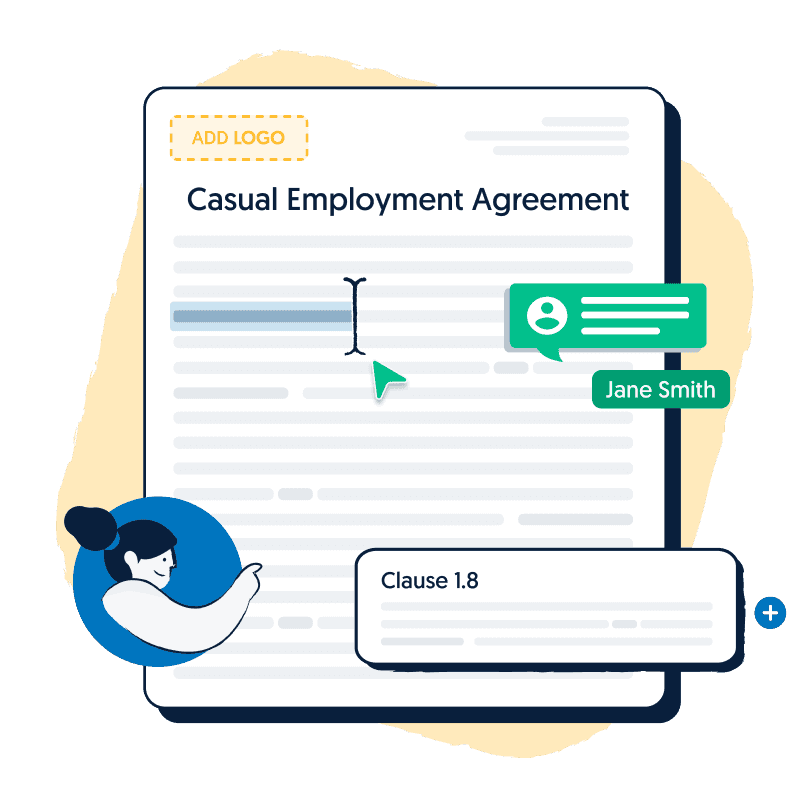This is an issue that has grabbed the attention of the Full Federal Court, Australian Parliament and High Court of Australia. Over the last 12 months, the question of ‘can casual employees get annual leave?’ has been murky, at best. This article will get you up to speed on the latest laws and rulings regarding casual employees and annual leave. But first, we must accurately define who a casual employee is, as this definition alone has undergone massive legal changes. After we have an accurate definition, we will dive into the High Courts ruling on casual employees, focusing on the High Court case of WorkPac v Rossato & Ors [2021] HCA 23.
Who is a Casual Employee?
On 27 March 2021, the Fair Work Act 2009 (Cth) defined who a ‘casual employee’ is. Now, it might seem strange but before early 2021 there was actually no definition for casual employment in the Fair Work Act, or any Act for that matter. But, the Australian Parliament decided it was time to define the casual employee, after controversies from the WorkPac v Rossato case. We will get to this a bit later.
Accordingly, section 15A(1) of the Fair Work Act states that when an employee accepts that an employer is making “no firm advance commitment” for continuing work, a casual employment relationship exists. This section is saying, a casual employee enters their employment knowing their working hours and status can change instantly. In general, casual employment involves a minimal amount of commitment from both sides. This is because there is no certainty of ongoing work, leave entitlements, regular hours or even continued employment. For more information on these changes, see “Important Changes to Employment Laws Set to Go Ahead“.
Now, this definition of casual employee is no different to everyones past understand. So, what happened in WorkPac v Rossato that caused the Australian Parliament to finally define ‘casual’ employment?

Get your Casual Employment Agreement now for free.
Hire casual employees in any industry. This Employment Agreement (Casual) is essential when hiring new employees for your business.
Can Casual Employees get Annual Leave?
The answer to this question begins with the case of WorkPac v Rossato.
The Case of WorkPac v Rossato
Mr Rossato was a mining truck driver employed by WorkPac between 2014 and 2018. The employment contracts that Mr Rossato entered into with WorkPac were all casual employment agreements. Importantly, Mr Rossato worked on a fixed weekly roster. At times, Mr Rossato would receive his roster multiple months in advance. So, even though Mr Rossato’s employment was classed as ‘casual’ in his employment contract, his employment did mimic a more permanent employment relationship. So, was Mr Rossato entitled to annual leave even though he was a casual employee ‘on paper’?
Federal Court held:
The Full Federal Court held that Mr Rossato’s employment was evident of a ‘firm advance commitment of continuing work’ due to his extensively fixed rostering schedule. On this basis, the Full Federal Court found that Mr Rossato was not a true casual employee. Now, even though this finding was contrary to his casual employment contract, he was eligible to receive annual leave payments. The test the Full Federal Court used, the “firm advance commitment of continuing work” test, is now the correct test to determine casual employment under the Fair Work Act. This is how we got this ‘casual employee’ definition in section 15A(1).
High Court held:
The case was appealed to the High Court of Australia. On 4 August 2021, the High Court made the finding the Mr Rossato was a true casual employee. The High Court made this decision on the basis that Mr Rossato’s employment contract never gave any “firm advance commitment” of continuing work. The Full Federal Court made an error in their judgement by focusing on Mr Rossato’s expectation he would be offered continued work. The High Court emphasised that the importance of the words and terms of his employment contract. Therefore, he was not eligible to receive any annual leave payments.
Impact of WorkPac v Rossato Case
The High Court determined that the test of “no firm advance commitment” was the correct test to determine casual employment. But, to assess whether a “firm advance commitment” existed, the focus was on the terms of the employment contract. In other words, to find whether a “firm advance commitment” exists, we must look to the casual employment contract. A regular working casual employee cannot prove a “firm advance commitment” exists on their subjective belief or expectation alone. Therefore, the expectation of continuing employment is not enough. The continuation of employment must be in the terms of the written employment contract.
So, casual employees are not able to receive annual leave payments. Of course, they can take periods of unpaid leave, as agreed by their employer. But, they are not able to receive annual leave payments as their employment type lacks any “firm advance commitment” of ongoing work.
Key Takeaways
If anything should be taken from this new legislative definition of casual employee, or WorkPac v Rossato, it is that the contract of employment is of extreme importance. Therefore, the terms of the employment contract remains the primary decider in whether the employment type is casual or not. We urge you to review your current employment contracts, as the importance placed on employment contracts is more important than ever before.






